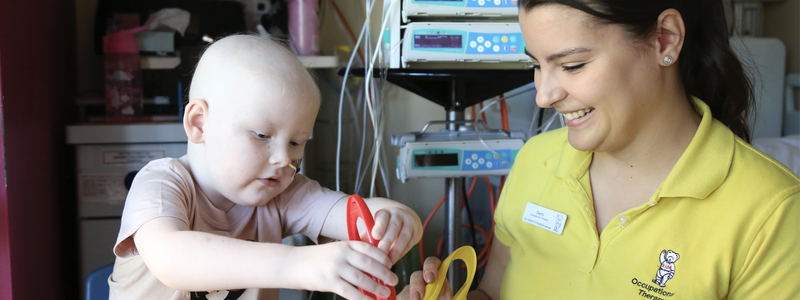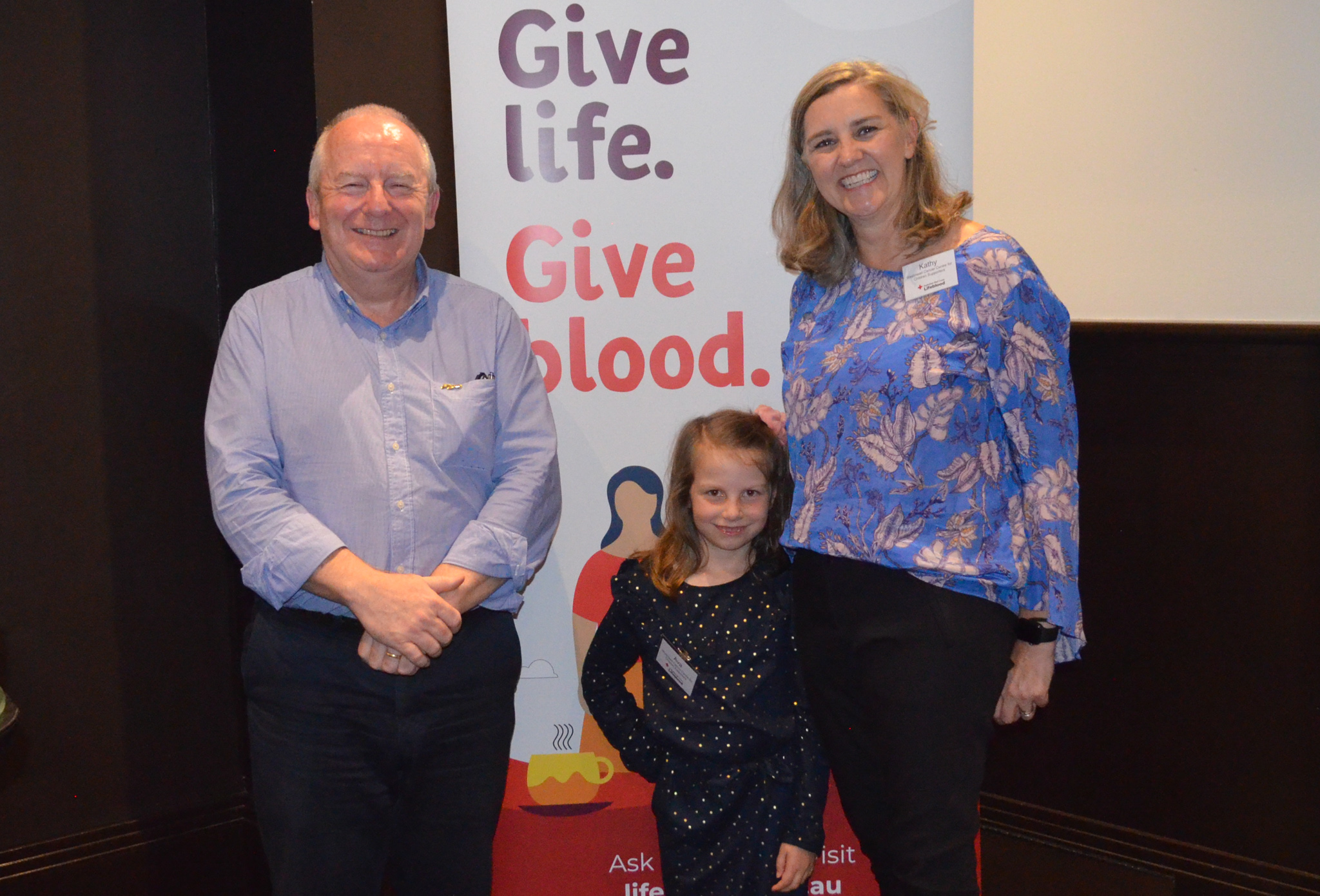
Family | Patient hub

Children being treated for cancer often need transfusions of blood and blood products and rely on donations by volunteers to provide them with this life-saving gift. Cancer patients use about one third of the blood products produced by the Australian Red Cross and they are a critical resource for which there is constant demand.
"The Cancer Centre for Children at The Children's Hospital at Westmead is a significant user of blood products from the Red Cross," says Laurence Hibbert, from the Oncology Parents Advisory Council (OPAC) at the Hospital, whose son was treated for cancer there.
"Ask parents of a child with cancer about the number of transfusions that their child has had and few will remember, they received so many."
Why children with cancer often need transfusions
During a transfusion blood, or blood products, are transferred from one person to another to help provide a substance they need. Cancers and cancer treatments can affect the ability of children to create the blood products their bodies need.
This can happen because cancer may interfere with how bone marrow produces elements including red cells, white cells, and platelets. An example of this is leukaemia, which is a type a blood cancer that nearly always requires transfusions. In fact, patients with blood cancers use more than half the platelets produced by the Red Cross.
Treatments designed to fight cancers can also be so strong they make children unwell in other ways, such as many types of chemotherapy medicines that can depress blood cell production and immunity.
Types of transfusions children can receive
Whole blood is not often used in transfusions for childhood cancer because its various parts have valuable properties. Blood is made up of components that have a specific function and are transported around the body in a fluid called plasma. Components that can be separated and given to children in transfusions include:
- Red cells – give blood its red colour and carry oxygen to all parts of the body
- White cells – help the body fight infection
- Platelets – are cells that prevent bleeding by helping blood to clot
- Plasma – is clear to pale yellow in colour and contains proteins, minerals and clotting factors to stop bleeding
- Albumin – helps to fight infection and repair muscle tissue
- Gamma globulin – is a type of protein found in blood plasma that helps boost the body’s immunity
Did you know?
The Red Cross call their service ‘Lifeblood’ because it is not only blood, but other products too such as plasma or platelets. Most importantly, for just an hour of your time, every blood donation you make can help save 3 lives.
Thinking of giving blood?
Visit the Australian Red Cross Lifeblood website and fill in the online form.
32% of donations were made by teams last year. Would you like to join a team? Consider joining The Cancer Centre for Children at The Children's Hospital at Westmead Supporters, a group of parents who donate as a team and welcome new members.
How blood donors helped save Ava’s life

Transfusions were an important part of Ava's treatment, at the Cancer Centre for Children, after she was diagnosed with cancer at 3 years of age. Kathy Garland, Ava's mother, recently thanked volunteers for their vital donations saying, "You are why my daughter is here today."
Read Ava’s story here.
Samara is an "absolute miracle" thanks to blood donors

Blood products were a vital part of Samara’s ability to withstand cancer and its treatment and their positive effects were not just hidden in her veins but were also very noticeable in other ways. “Samara becomes pale, tired and lethargic when needing blood, and when she is in need of platelets her legs are covered in bruises, she just needs to be touched to bruise,” said Anita, her mother.
Read Samara's story here.
Last updated: 18 August 2020
- Log in to post comments
